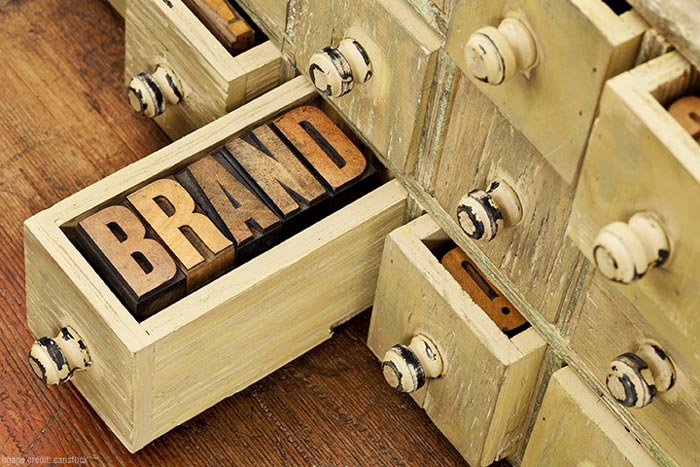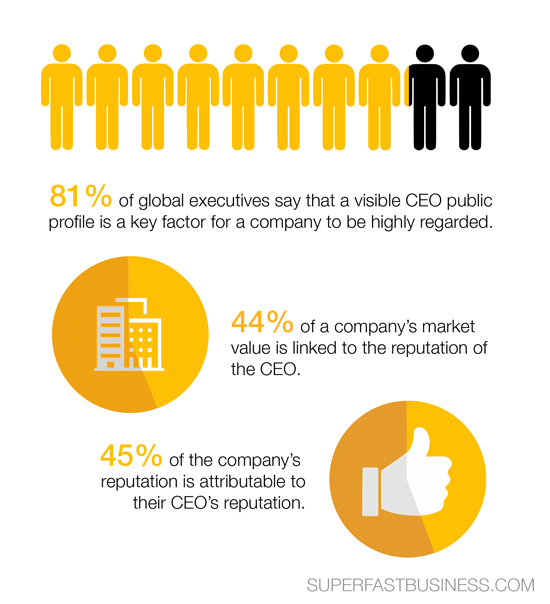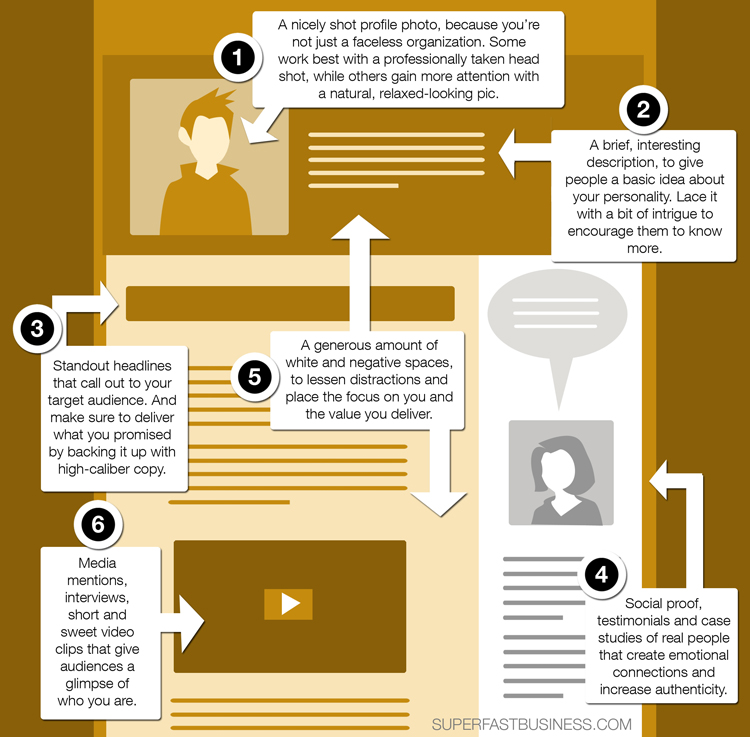Podcast: Download (Duration: 7:54 — 7.4MB)
Get Notified Of Future Episodes Apple Podcasts | Spotify | Amazon Music | Android | Blubrry | Gaana | TuneIn | Deezer | Anghami | RSS | More
I’m playing one of those games a friend of mine had on their phone and it was about recognizing logos and I was amazed how many logos I could recall even though they were partially complete, or in some cases, just a very basic color or background.
How your business is perceived is synonymous with how you are perceived as a business leader. The reputation of your company, its market value, the purchase decisions of your target market, the strength of your team – all these rest heavily on you (not to pressure you or anything).
Business brand identity has always been linked to the personal brand of the owner, founder, CEO (and the top personalities in the company). But the link has become stronger and more inseparable than ever.
In the online marketplace, private and public lines intersect all the time. Information that was never accessible before is now within fast and easy reach. People expect – they demand – transparent, authentic, no-holds barred interactions.
In this setting where CEOs, royalty and the Pope are just a tweet away, people don’t just buy from people. Rather, people buy from people they like. As Seth Godin defines, “A brand is the set of expectations, memories, stories and relationships that, taken together, account for a consumer’s decision to choose one product or service over another.” While customers won’t support your products based on your personality alone, who you are will have a huge influence in shaping how your business is perceived.
Whether you’re a solo entrepreneur, a proprietor of a mid- or small-sized business, or a startup founder, the following findings of a Weber Shandwick study holds relevance:
A business leader who puts herself out there most likely enjoys higher credibility and the trust and engagement of the market, versus a leader who would rather stay behind closed doors. With a strong public presence, you can:
Designing your Personal Brand
Today, you have access to many platforms and opportunities to be seen and heard. One of the most effective and important ways to cultivate your personal brand is through your website. Or more specifically, through being more visible in your company website.
“Your brand is what people say about you when you’re not in the room,” Amazon founder Jeff Bezos said. Make it easy for people to talk behind your back in terms you’d like by aligning your website design according to your mission and the values you uphold.
Here are some basic elements you would want to incorporate into your website to boost your personal brand:
1. A nicely shot profile photo, because you’re not just a faceless organization. Some work best with a professionally taken head shot, while others gain more attention with a natural, relaxed-looking pic.
2. A brief, interesting description, to give people a basic idea about your personality. Lace it with a bit of intrigue to encourage them to know more.
3. Standout headlines that call out to your target audience. And make sure to deliver what you promised by backing it up with high-caliber copy.
4. Social proof, testimonials and case studies of real people that create emotional connections and increase authenticity.
5. A generous amount of white and negative spaces, to lessen distractions and place the focus on you and the value you deliver.
6. Media mentions, interviews, short and sweet video clips that give audiences a glimpse of who you are.
Selling the Self – Risks and Opportunities
Highlighting your personal brand online as a business leader – being more transparent and out there – has its costs, as any public figure will attest. On the positive side, you can make use of your website to craft your brand so you can:
– Tell the story of your business and show what makes you unique
– Share who you are as a leader and as a team and what you do best
– Showcase what you can offer better than others
– Correct misinformation and inaccuracies about you and your company
– Share valuable information and address issues and questions about your industry
– Stand up for what you believe in
– Build long-lasting relationships with your audience
Putting a stamp on it

Here’s the thing: Every individual has a personal brand that exists in online, whether it’s created intentionally or not. Your personal brand is an accumulation of all the digital footprints you leave in the Web – your website, your resume, your public profiles, your work, what you have said or written, what people have said or written about you, your public photos and videos and so on.
Based on this body of evidence, the public unconsciously shapes a picture of you. Your name becomes associated with specific descriptions and general characteristics or qualities. You become linked to certain topics, industries or fields of expertise.
As a person with a prominent business position, expect the audience to be looking at your digital footprints with a closer and more critical view. While there will always be a certain disconnect from the Internet and real life, here’s the more crucial fact: Your online branding is perceived to be more real and accurate than anything else. As Michael D. Simmons, co-founder of Empact, wrote on the Huffington Post: “Your online reputation is your reputation… In short, your online reputation will precede you.”
A View of You
Designing your personal brand is not about manipulating your image. After all, the formation of a person’s identity depends on multiple perspectives: what you know and don’t know about yourself + what others know and don’t know about you (yes, just like the Johari window).
A website that’s intentionally designed and aligned with your mission is the best opportunity and the most useful tool for you to highlight your personal brand. The aim is to continue refining it so the spotlight shines not just on you, but most importantly, on the people you want to serve as well.
The following are references we’ve used to compile information for this article:
https://usabilitygeek.com/does-your-website-enhance-your-personal-brand/
https://www.1stwebdesigner.com/graphic-web-design-trends-2015/
https://www.quicksprout.com/2014/07/16/the-complete-guide-to-building-your-personal-brand/
https://www.webershandwick.com/news/article/the-ceo-reputation-premium-a-new-era-of-engagement
https://foundersgrid.com/reputation-management
Tweetables:
What does your website say about you? [Click To Tweet]
How to boost your brand [Click To Tweet]
Design and highlight your personal brand. [Click To Tweet]
For more episodes, subscribe to the show on iTunes













Dear James,
You know, this issue has held me up for years. I’m an intensely private person and I really don’t care to create the impression that people can just “walk” into my world on the interwebs and learn more about me than most of my family will ever know. On the other hand, I want to create an internet business that makes it possible for me to eat, wear clothing without holes and have a roof over my head. I have been going through a lot of personal crap over the last few years because of people entering my apartment without my permission (via use of the janitor’s keys, credit cards etcetera) and tampering with things and causing destruction-in the case of my last apartment-which I was blamed for….In short, in this age of people who are willing to do anything to make a buck, or for any reason which they believe is valid, this approach causes me a lot of angst. I want people to be able to trust the experience I’m providing them, but at the same time I want to be able to secure in my surroundings. I don’t think Mayberry has existed for a very long time and this seems to be waaay too trusting to me. You have a great business and I assume for all of the staff and activity I see on your site, a somewhat profitable one. I would hate to think that you are putting it all at risk by not being private enough.
Any suggestions?
Sincerely,
Quantella Owens
Dear James,
You know, this issue has held me up for years. I’m an intensely private person and I really don’t care to create the impression that people can just “walk” into my world on the interwebs and learn more about me than most of my family will ever know. On the other hand, I want to create an internet business that makes it possible for me to eat, wear clothing without holes and have a roof over my head. I have been going through a lot of personal crap over the last few years because of people entering my apartment without my permission (via use of the janitor’s keys, credit cards etcetera) and tampering with things and causing destruction-in the case of my last apartment-which I was blamed for….In short, in this age of people who are willing to do anything to make a buck, or for any reason which they believe is valid, this approach causes me a lot of angst. I want people to be able to trust the experience I’m providing them, but at the same time I want to be able to secure in my surroundings. I don’t think Mayberry has existed for a very long time and this seems to be waaay too trusting to me. You have a great business and I assume for all of the staff and activity I see on your site, a somewhat profitable one. I would hate to think that you are putting it all at risk by not being private enough.
Any suggestions?
Sincerely,
Quantella Owens
Hi Quantella, you should only share what you are comfortable with. The upside of being vulnerable is that it feels good to just be yourself and also people know you are real. I dont share private things or involve my pictures of my kids in my marketing.
Hi, James okay?
I hope so ….
I’m solving a form of payment for your useful and important product.
I’m alone I have no team and as I told you, I have no product but want to start with the pod cast.
So I ask you, how will I measure and organize all my project?
What should I use and how should I use the face, not to become dependent on that platform?
In Itune there is a way to measure?
love
Lia
Hi, James okay?
I hope so ….
I’m solving a form of payment for your useful and important product.
I’m alone I have no team and as I told you, I have no product but want to start with the pod cast.
So I ask you, how will I measure and organize all my project?
What should I use and how should I use the face, not to become dependent on that platform?
In Itune there is a way to measure?
love
Lia
Hi Lia, I recommend you use EVERNOTE to organise your notes. It is like a digital filing cabinet. Regarding iTunes I measure downloads using Blubrry stats (free)
Great article James, I love the Jeff Bezos quote! So very true that business owners need to have a real awareness that they are building a personal brand interconnected with their business brand. Really good to see you highlighting the importance of this.
Great article James, I love the Jeff Bezos quote! So very true that business owners need to have a real awareness that they are building a personal brand interconnected with their business brand. Really good to see you highlighting the importance of this.
Thanks Cate